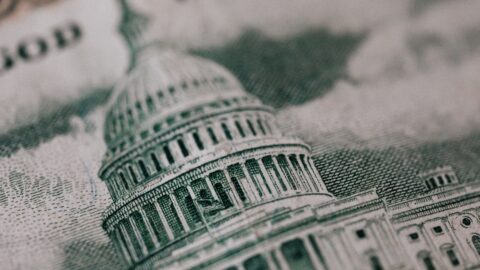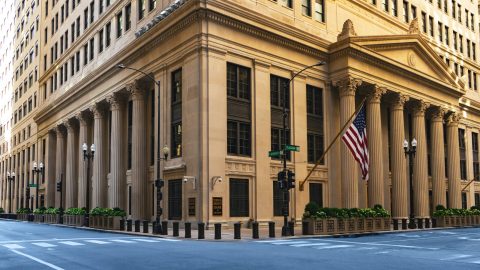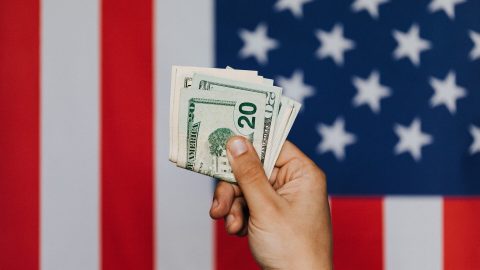All articles on the topic “Markets”

What is the key interest rate?
Ahead of the ECB’s upcoming interest rate decision, there is much discussion about the central banks’ interest rate policy and the key interest rate – will it be lowered or not? Its development has a significant influence on the economy and the financial markets. In this article, we discuss the role of the key interest rate and which interest rates are relevant.
Swimming against the tide with alternative investments
Alternative investment strategies are not comparable with traditional asset classes such as equities or bonds – this is precisely their charm. But how do these strategies work and how can investors invest in them?
Global Economy: IMF with more positive outlook
According to the IMF, the global economy could grow more strongly than expected this year. In the US and China, the economy is likely to remain robust, although growth in the People’s Republic is likely to weaken. The experts are less optimistic about the German economy.
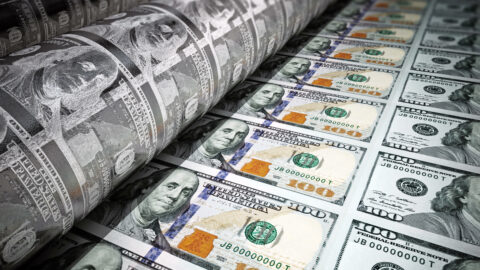
US interest rates: What are we to expect in the coming months?
As the latest data shows, the US economy continues to grow strongly – despite the significant interest rate hikes in the past two years. What impact will this have on the Federal Reserve’s future interest rate policy and when could the first rate cuts follow?

Davos 2024: Climate Crisis, AI, geopolitics and interest rates were key topics
Last week, many high-ranking representatives from politics and business once again gathered in Davos, Switzerland, for the annual World Economic Forum. The most pressing topics were the use of AI, the climate crisis and geopolitical tensions. Meanwhile, central bankers made interesting statements on future interest rate policy.
Inflation, interest rates, markets: 10 topics for 2024
After the price rally at the end of last year, the markets started 2024 with price losses. The ongoing positive correlation between bonds and equities is striking. Both asset classes have fallen equally recently, which makes diversification in a portfolio more difficult. But the year has only just begun. We therefore take a look at 10 key topics for 2024 that could be helpful when putting together a portfolio.
Money tip: Invest in Japanese stocks
Following the recent gains in the Japanese benchmark index, the stock market of the world’s third-largest economy could be worth a look. What is the state of the economy and monetary policy in the “Land of the Rising Sun” and how can investors invest in Japanese stocks?
Market outlook: What investors can expect in 2024
2023 brought many surprises – including positive ones, such as the unexpectedly good performance across all asset classes. What can investors expect in the new year and which topics could come into focus? Gerald Stadlbauer, Head of Discretionary Portfolio Management, provides an outlook.
US elections 2024: The United States and its debt
In 2024, all eyes on the financial markets are also focused on the US elections in November. After years of expansionary fiscal policy, the debt situation in the United States is also coming back into focus in the run-up to the elections. What are the political and economic implications of the growing budget deficit?
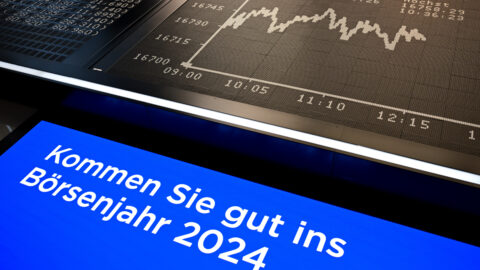
Stock markets review: Hopes for interest rate cuts fuelled significant gains in 2023
The international stock markets closed out 2023 with significant gains. Hopes of abating inflationary pressure and declining interest rates were the main market drivers in Q4, resulting in a strong year for stock exchanges.
Best of Charts: What’s coming, what’s going, what’s staying?
After a weak market year in 2022, 2023 is shaping up to be a pleasing conclusion for investors. Senior Fund Manager Christian Süttinger explains what remains of this year and what could be of particular interest on the markets in 2024 with the help of a few currently important charts.
Argentina: Javier Milei Presidente! Wind of Change?
Following his surprising election victory, the controversial economist and self-proclaimed “anarcho-capitalist” Javier Milei was sworn in as Argentina’s new president. He takes over a country in economic crisis with an annual inflation rate of over 100 percent and a high debt burden.
Capital markets outlook 2024: good opportunities in the US election year
After a difficult market year in 2022, many asset classes performed much better this year. The outlook for the coming year 2024 is also positive – the central banks’ turnaround in interest rates has brought about a return to normality on the bond market and, with the rise in yields, is also opening up new opportunities for investors. At the same time, the ongoing geopolitical tensions in particular pose a challenge. With the improved yield opportunities for bonds, mixed funds are also coming back into focus.
Members of OPEC+ plan to further cut oil production
The OPEC+ oil association was unable to agree on official production cuts at its meeting last Thursday. However, individual member states announced plans for cuts. In a joint statement after the meeting, the more than twenty OPEC+ states also announced that Brazil would join the production alliance at the beginning of next year.
Increasing optimism for a “soft” economic landing
While equities have recently risen, yields on the bond market have weakened. The markets are being supported by increasing hopes of a “soft” landing for the economy. What are the chances of this scenario?
Surprise result in the Dutch elections
After around a year, the Dutch government under Prime Minister Rutte collapsed in the summer of 2023 due to disagreement over migration policy. It came as a surprise that long-serving Prime Minister Rutte decided not to stand again in the next elections. After more than thirteen years in office, making him the longest-serving prime minister […]
Can China’s economy still be revived after the slowdown?
According to Covid, growth in the Chinese economy is lower than expected and the willingness to invest and consume is declining. The real estate market is also adjusting after the boom years. What short- and long-term measures does the central government intend to take to revive the economy?
More Optimistic Outlook for German Economy among Experts
Stock market professionals are less pessimistic about the prospects for the German economy in the next six months. This is shown by the current economic barometer of the Center for European Economic Research (ZEW). The government also wants to get the economy moving again with additional relief measures.
Encouraging fall in inflation
Since the beginning of November the prices of both risky security classes such as equities and credit-safe government bonds have been on the rise. The market appears to be increasingly pricing in a so-called “soft” landing for the economy. The probability of this actually increased over the course of the year. However, the economic data published in recent weeks and months does not contradict the “hard” landing scenario.
Soft-landing optimism might be in for some disappointment
The financial environment has become slightly more relaxed since the beginning of November. This fact is manifesting itself on the market in the form of falling yields and rising share prices. This week, two indicators relating to the US economy in particular could provide clues as to the sustainability of this trend since the beginning of the month: retail sales and consumer prices.
Holiday sales: Hopes for record season in the US
The robust labor market and many special offers give hope for another record Christmas season in the USA. The latest market research data also shows that, despite inflation and high interest rates, Americans are once again planning to spend more over the holidays this year.
India and the West – at the crossroads?
India was recently in the spotlight as the venue for the G20 summit. Shortly thereafter, however, the relationship with the major Western states cooled. How will the West’s relationship with India develop and what role will the country play in the future?
Middle East Conflict continues: worries about expansion to other countries
Roughly two weeks after the surprising terrorist attacks by the radical Islamic Hamas ruling the Gaza Strip, on targets in Israel, the military conflict in the country continues unabated. The war in the region also continues to dominate the financial and commodity markets, with global concerns that the conflict could possibly spread to other countries in the Middle East being the main driver of uncertainty.
Artificial Intelligence – Tool or Toy?
There is hardly any getting around artificial intelligence (AI). Are we only at the beginning of an AI hype or has it already peaked? For whom is AI good business at all and what can the new technology actually be used for?
Gold: From means of payment to safe haven
Gold has played an important role in the financial and economic system for centuries. While it initially served as a means of payment, the role of the precious metal increasingly changed over the course of history to become a crisis currency and a store of wealth in uncertain times.
Market commentary: Is the interest rate peak reached?
“Higher for longer” has become the mantra of the powerful central bankers in recent months. Monetary policy is likely to remain restrictive longer than originally expected. Regardless of whether the major central banks will follow up with a final interest rate step in autumn, the interest rate peak has probably been reached and “the worst” is behind us.
How restrictive are the current interest rate policy and financial environment really?
In line with the surprisingly strong economic indicators in the US, government bond yields have risen significantly in recent months. This is putting pressure on the prices of many classes of securities and intensifying discussions about how restrictive interest rate policy really is. Could the higher level of yields make the central bank’s job easier in the form of further interest rate hikes?

Attack on Israel: Reaction of the markets
The terrorist attack on Israel by Hamas last weekend dominates the international headlines. The markets are reacting to this with price declines, but the extent of the movements has so far been limited.
Inflation continues to fall: Do interest rate hikes now come to an end?
Inflation in the Eurozone is expected to fall further. According to initial estimates, the inflation rate fell more sharply than expected in August. With a view to the next ECB interest rate decision at the end of October, the question now arises: Do interest rate hikes now come to an end?
Dollar exchange rate, oil price, and interest rates burdening the markets
The stock markets have recently come under pressure due to several factors. Both the higher dollar exchange rate and the higher oil prices and yields on the bond market are weighing on prices. Chief economist Gerhard Winzer assesses the current situation in his blog article.
Crude Oil Prices Hit Highest Level in 10 Months
Oil prices have been rising steeply for several weeks. The prices of the most important oil companies have also risen. How can investors profit?
Where is the German housing market heading?
Despite higher inflation and interest rates, demand for housing in Germany is expected to remain robust.

Hopes for a soft landing
In the past, sharp hikes in key interest rates often triggered a recession. After the latest economic and labour market data, hopes are growing for a soft landing of the economy.
What are the lasting results of the central bank meeting in Jackson Hole?
At the annual meeting of central bankers in Jackson Hole Federal Reserve Chair, Jerome Powell, summed up the uncertain environment as “navigating by the stars in a cloudy sky”. This relates, among other things, to the uncertainty about the level of the neutral interest rate, the lagged effect of key-lending rate hikes on economic growth and inflation, and the drivers of inflation.
Sustainable investments: fad or long-term trend?
With a view to the Ukraine war, the multiple regions of crisis or the extreme inflation, one would be forgiven for thinking that sustainability issues were taking a back seat when it came to investing. Gerold Permoser, Chief Investment Officer of Erste Asset Management, claims that this is not the case and that there is a lot of potential for investors. In a recent press talk, he and Heinz Bednar, CEO, presented five key drivers for ESG investments.
The known unknown: China’s recovery proves more difficult than expected
After getting off to a good start at the outset of the year, economic recovery in China has recently stalled again. Following the lifting of stringent measures to contain the pandemic, the path out of the crisis is proving slower than expected. The flagging domestic demand as well as the ailing real estate sector, have recently put a damper on the world’s second-largest economy.
Compound interest – how to make interest work for you
Interest ensures that the money in the savings account or invested in securities grows. If you have already saved or invested some money, you will receive interest on the interest again. This is compound interest. Compound interest makes your money grow even faster, especially if you don’t touch the money for years and interest rates are high.
Soft landing with risks
Currently, the most important indicators point to average global economic growth and falling inflation. The probability of an immediate recession has decreased significantly. But the risks in the medium term remain. Chief economist Gerhard Winzer explains which three scenarios are currently emerging in the blog post.
Miracle drug semaglutide: slim by injection
Originally, the Danish company Novo Nordisk wanted to develop Semaglutid as a drug for diabetes 2 patients. However, the appetite-reducing effect of the drug soon became apparent, making semaglutide a miracle cure for obesity. While Novo Nordisk’s share price has risen significantly since then, possible side effects of the drug are now also being examined.

Turnaround in the Energy Market: Power Companies Raise Forecasts, Oil Companies’ Profits Drop
The decline in crude oil prices has led to a trend reversal in the energy market this year: while many power companies have recently raised their profit forecasts, the major oil companies suffered massively from the recent drop in crude oil prices. Meanwhile, in the effort to reach climate targets, the trend toward renewable energies continues unabate

Microfinance – Fund Manager Martin Cech on an investor trip to Uzbekistan (Part II)
Microfinance fund manager Martin Cech recently went on an investor trip to Uzbekistan. While he wrote about the banks and microfinance institutions he visited in the first part of his travel report, he describes his impressions of the visits to some borrowers in the second part.
How high do key interest rates still climb?
Both the European Central Bank and the Federal Reserve in the USA raised the key interest rate by 25 basis points last week. However, both central banks signalled that the end of the cycle is near – or may even have already been reached after the recent rate hikes.

Microfinance – Fund Manager Martin Cech on an investor trip to Uzbekistan (Part I)
Martin Cech, fund manager of ERSTE RESPONSIBLE MICROFINANCE, visited a number of banks and microfinance institutions from the fund’s portfolio during an investor trip to Uzbekistan. He reports on his impressions in the blog post.
Best of Charts: Beach Edition
The stock markets are also usually a little quieter during the summer months. Many market participants take a break due to holidays and the general activity decreases. In any case, a look at some important charts indicates that no nasty surprises are to be expected during the holidays.
Summer, sun & early election: Spain gets ready for a tight race
The Spanish economy is showing resilience, unlike other countries in the euro area. Now, however, the southern European country is preparing for early elections next weekend, with a tight race looming.
Immaculate disinflation: Is that possible?
Can price stability, i.e. inflation of 2%, be achieved without a recession? The further decline in inflation in the US in June has raised expectations for this favourable scenario. However, a look in the rear-view mirror calls for caution. In the past, a central bank-induced decline in inflation has often been accompanied by a recession.

Recession, inflation, key interest rates: Economic outlook for the second half of the year
The feared recession has so far failed to materialise and inflation is also falling. Nevertheless, the risks remain on the downside. What could be in store for the markets in the second half of the year?
Benefit from the megatrend Artificial Intelligence with equities
The megatrend of artificial intelligence is also on everyone’s lips on the financial markets. Some companies from the AI sector have posted significant gains in their stock price so far this year. We show you with which investments you can profit from the AI boom and what you need to bear in mind.
Fight against inflation: Monetary policy remains restrictive
Central banks remain on a restrictive course and hold out the prospect of further key interest rate hikes. Although there are some signs of a further decline in inflation, it is falling more slowly than expected. You can read where the journey could lead in the blog post.
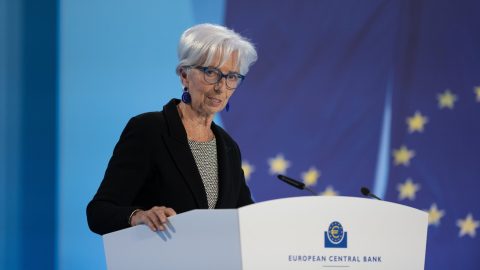
Interest rate decisions in focus: what will the central banks do?
This week, the markets are eagerly awaiting the upcoming interest rate decisions. The Fed in the USA will make the first move today, Wednesday. For the first time in the current cycle, no increase in the key interest rate is expected. For tomorrow’s interest rate decision by the ECB, on the other hand, the market expects a further rate hike of 25 basis points.






